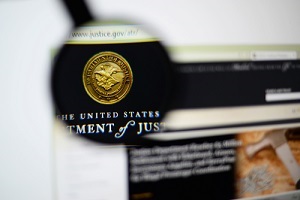Medical Devices and DME Fraud
 Government healthcare programs are susceptible to losses through the fraudulent prescription and dispensing of medical devices and durable medical equipment and supplies (DME).
Government healthcare programs are susceptible to losses through the fraudulent prescription and dispensing of medical devices and durable medical equipment and supplies (DME).
Medical devices include a wide variety of equipment—everything from bedpans to x-ray machines—used to prevent, diagnose, or treat diseases or other conditions.
DME encompasses devices used in patient homes, such as:
- Wheelchairs and walkers,
- Oxygen supplies,
- Blood glucose monitors, and test strips,
- Devices to treat sleep apnea, and
- Prosthetic limbs.
Through Medicare and Medicaid, the government pays for a variety of medical devices, including DME prescribed by a doctor who deems the DME medically necessary.
Medical device and DME fraud can constitute a violation of the False Claims Act (FCA) and other federal and state laws. Here’s what you should know about this type of healthcare fraud.
Examples of Medical Device and DME Fraud
Medical device and durable medical equipment (DME) fraud and abuse comes in many forms, including:
Illegal Payment Arrangements
FCA liability is triggered when fraudsters violate federal laws prohibiting payment arrangements that could incentivize overutilization.
Examples include payments to induce patient referrals (kickbacks), certain self-interested dealings, and in some instances, business overlap between device suppliers and the providers or facilities involved in diagnosing the equipment.
Off-Label Marketing
Medical device companies commit fraud by marketing and promoting their products for unapproved or “off-label” uses or populations.
Approved uses and populations are designated by the U.S. Food and Drug Administration (FDA), which regulates medical devices to ensure they are safe and effective for patient use.
Defective Devices
A medical device supplier may violate the FCA by selling defective medical devices.
For example, a device may be considered defective if it does not comply with the FDA’s Current Good Manufacturing Practice (CGMP) regulations, which are designed to protect consumers from ineffective or harmful devices.
Unnecessary DME
Fraudsters engage in a number of practices to skirt Medicare’s requirement that a device be medically reasonable and necessary for diagnosis or treatment.
Medical device companies sometimes commit blatant fraud in the form of forging or falsifying a physician’s medical necessity determination.
Fraud also takes less obvious forms, such as enrolling patients in medical device auto-refill programs without taking appropriate steps to ensure the patient’s ongoing need for the device.
Unlicensed Technicians
Durable medical equipment (DME) suppliers defraud the government by employing unlicensed technicians to dispense medical equipment or failing to adhere to supervision requirements.
Licensing and supervision requirements exist because some complex DME requires calibration and/or individualized fitting to ensure the patient receives the equipment’s full benefit, and also to avoid patient harm.
States set their own licensing requirements for technicians who dispense DME, and compliance with applicable state requirements is necessary to qualify for federal healthcare program reimbursement.
Unlicensed Facility
Suppliers may commit fraud by dispensing DME to government beneficiaries from unenrolled or unlicensed facilities.
To lawfully bill Medicare for DME, a supplier must enroll each location where it dispenses DME, and must also comply with state licensing requirements.
Contact a Medical Device and DME Fraud Whistleblower Lawyer
If you believe you have information about durable medical equipment or device fraud, please submit our secure form to request a confidential case evaluation with one of our skilled whistleblower attorneys.




